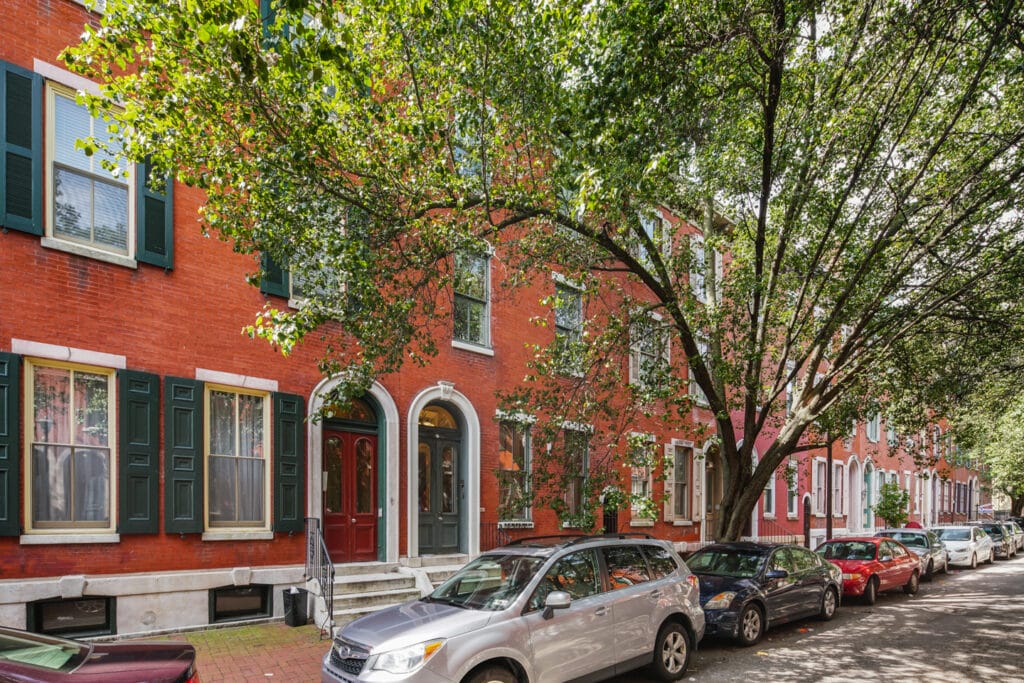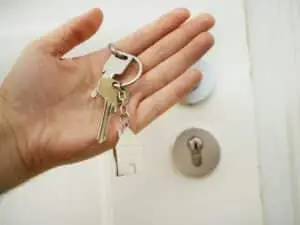If you own rental property in Philadelphia, securing a rental license isn’t just a formality—it’s the law. At HubKey Real Estate, we’ve helped dozens of investors and homeowners navigate the city’s licensing process. This guide breaks down everything you need to know about obtaining and maintaining a Philadelphia Rental License, including the step-by-step process, required documents, and common pitfalls to avoid.
Understanding the rental license process is crucial for ensuring compliance and avoiding legal issues. Landlords must maintain basic standards in their rental properties to ensure tenants’ health and safety. City regulations require properties to be in good repair, structurally sound, and sanitary. Non-compliance can lead to needing to resolve code violations to obtain a rental license.
Whether you’re a first-time landlord or a seasoned investor, read on to ensure your property stays compliant and protected.
Why You Need a Rental License in Philadelphia
If you rent out a property—even a single unit—you must have an active Rental License from the City of Philadelphia. Without it, you’re technically operating illegally and risk receiving a code violation. More importantly:
- You can’t legally collect rent.
- You can’t file for eviction in court.
- You risk fines, legal liability, and complications during resale or refinance.
City officials and tenants can compel compliance from landlords through various enforcement measures, such as sending reminder letters and imposing fines, to ensure property conditions are met and housing standards are improved. Unresolved code violations can lead to legal proceedings in municipal court, including potential fines and eviction actions.
Bottom line: skipping this step isn’t worth the risk.
What You Need to Get a Rental License
Before applying for your license, you’ll need the following essentials:
- Philadelphia Tax Account Number (a.k.a. PHTIN or city tax account)
- Commercial Activity License (CAL)
- Proof of Legal Occupancy (via a Certificate of Occupancy, prior license, or zoning permit)
- Lead-Safe or Lead-Free Certification (required if the property was built before 1978 or houses young children)
- No open L&I violations (check via Atlas)
- Proof of Ownership (download from OPA)
- Completed Rental License Supplemental Information (RLSI) Form
- Managing Agent Info (like HubKey’s, if we’re handling the license for you)

Step-by-Step: How to Get a Philadelphia Rental License
Step 1: Register for a Philadelphia Tax Account
Head to Philadelphia’s Tax Center to register for a city tax account as a new taxpayer. You’ll need to set up Business Income & Receipts Tax (BIRT) and Net Profits Tax (NPT) accounts. This step is required to operate any rental business in the city.
Step 2: Get a Commercial Activity License (CAL)
Once you have your tax account number, apply for your Philadelphia Commercial Activity License (CAL) through Eclipse. This license is required for doing business in the city, including leasing property. Obtaining this license is a prerequisite for renting out residential units. It only takes a few minutes to complete, and there’s no fee.
Step 3: Submit the Rental License Supplemental Information (RLSI) Form
This document outlines property ownership, management details, lead certification compliance, and more. At HubKey, we streamline this process through PandaDoc so our clients can complete it digitally in minutes. Completing the RLSI Form is a crucial step in the rental license application process.
Step 4: Gather and Upload All Required Documents
You’ll need to upload:
- Proof of ownership (OPA record or settlement sheet)
- Signed RLSI Form
- Lead certification or proof of exemption (via LHHP), which may require a lead inspection for properties built before 1978
Step 5: Apply for the Rental License
Now that your CAL is active and documents are ready:
- Log into Eclipse
- Click “Apply for a Business License”
- Select the appropriate CAL
- Choose “Rental” as the license type
- Enter business and property information
- Upload required documents
- Pay the $20 deposit online (the full fee is $69 per unit)
Ensure that your property complies with zoning codes as part of the rental license application process.
Once submitted, you’ll receive confirmation and the city will process your application. If nothing is flagged, you’ll soon get the green light to pay the balance and download your license. Ensure that your license application is complete and accurate to avoid delays in processing.
Step 6: Finalize Payment & Download Your Rental License
After the city processes your application and you pay the remaining license fee, return to Eclipse to pay the remaining balance. Once paid, you can:
- Download the license
- Store it in your property records (we store them in Google Drive)
- Log expiration dates in your compliance tracker
Step 7: Pull the Certificate of Rental Suitability (CRS)
This is mandatory and needs to be delivered to tenants with every new lease (or lease renewal). You can request the CRS via Eclipse using your license number. It proves your property meets city rental standards and has no violations. If there are any outstanding violation notices, ensure they are under pending appeal to qualify for the certificate. Any code violations must be resolved or under pending appeal to obtain the Certificate of Rental Suitability.
Note: The CRS is valid for only 60 days. You’ll need a fresh one for each new tenant.
Step 8: Enroll in the PGW Landlord Cooperation Program (LCP)
If your rental uses gas, you’ll also want to enroll in PGW’s LCP. This program:
- Notifies you of gas shutoffs or service issues
- Protects you from liens due to unpaid gas bills
- Confirms tenant move-outs
Make sure your mailing address is up-to-date to receive notifications from the program.
You can register here after your rental license has been active for at least 8 days.
Staying Compliant: Rental License Renewals
Rental licenses must be renewed annually and cost $69 per unit. You can renew up to 60 days before expiration through Eclipse. HubKey monitors all our clients’ licenses and proactively renews them to avoid lapses.
What If Your Application Gets Flagged?
The most common issues include:
- Outstanding city taxes
- Outstanding violation notices from the city
- Missing lead certification (or failure to enter exemption)
- Incomplete or mismatched ownership records
If this happens, don’t panic. HubKey’s team knows how to troubleshoot quickly, whether it means contacting the Department of Revenue or updating documents in the LHHP system. Unresolved issues may be referred to the Law Department for further enforcement action.
Inspections and Enforcement
Inspections are a crucial part of maintaining rental property standards in Philadelphia. The Department of Licenses and Inspections (L&I) conducts regular inspections to ensure that rental properties comply with city codes and regulations. These inspections cover various aspects of the property, including structural integrity, fire protection, and overall habitability.
The L&I is responsible for enforcing rental property standards and can issue fines and penalties for non-compliance. Property owners with outstanding violation notices must address these issues promptly to avoid further legal complications. Preparing for inspections involves ensuring that all safety measures, such as smoke detectors and lead-free certifications, are in place and up to date.
To maintain compliance, property owners should regularly check their properties for any potential issues and address them before they become violations. Staying proactive in property maintenance not only helps in passing inspections but also ensures a safe and comfortable living environment for tenants.

Why Work with HubKey?
Philadelphia’s licensing system is complex and often frustrating—especially for out-of-state landlords or busy professionals. That’s why we handle the entire process on your behalf, including:
- Gathering and submitting all paperwork
- Troubleshooting flagged accounts
- Ensuring compliance with lead laws and PGW
- Monitoring expiration dates and renewals
- Storing all documentation in a secure, organized Google Drive
Final Thoughts
Getting a Philadelphia Rental License isn’t optional—it’s essential. Whether you self-manage or work with a property management company, staying compliant protects your investment and ensures you’re operating legally. Compliance with Philadelphia law is essential for protecting your investment, ensuring tenant safety, and upholding tenant rights by maintaining properties to meet health standards.
At HubKey, we make the process seamless so you can focus on building wealth through real estate—not dealing with red tape.
Have questions or need help getting your license? Reach out to our team learn more.





